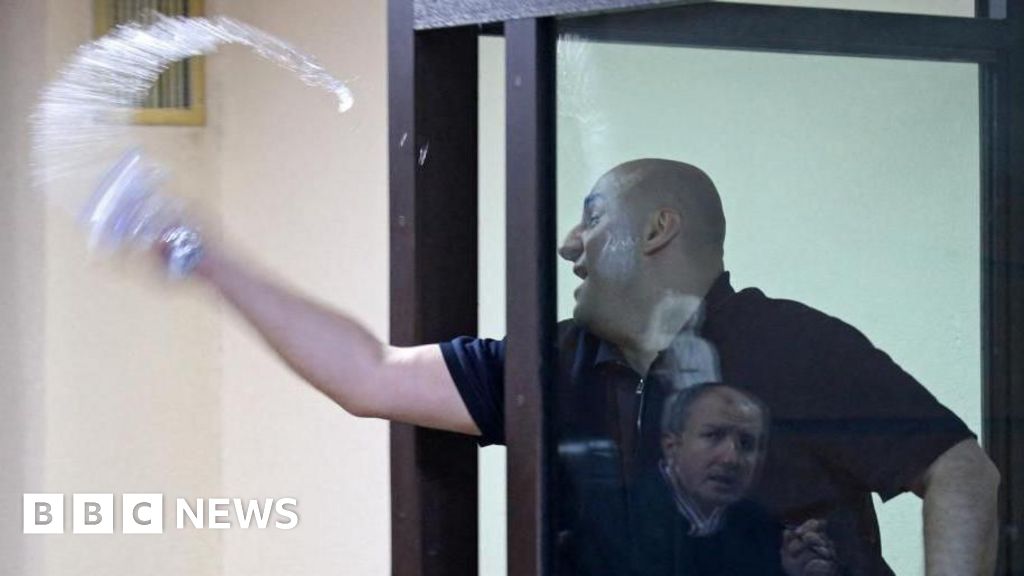In a dramatic crackdown on dissent, Georgia has imprisoned six political figures within a single week, marking what many observers describe as an unprecedented assault on the nation’s democracy. The country, located in the South Caucasus, has experienced months of political unrest since the government halted its ambitions to join the European Union following disputed elections.
Nika Melia, a prominent opposition leader and member of the Coalition for Change, was sentenced to eight months in prison on Friday by a court in Tbilisi. Former opposition MP Givi Targamadze received a seven-month sentence. This wave of imprisonment has left most major leaders of the pro-Western opposition behind bars, with two additional politicians currently in pre-trial detention.
The rapid escalation of the crackdown has alarmed many. Melia characterized the government’s actions as an attempt to instill fear among the populace. The imprisoned politicians were convicted for declining to testify before a parliamentary commission, resulting in a two-year ban from holding public office. Transparency International, an anti-corruption watchdog, called the situation “the most severe democratic collapse in Georgia’s post-Soviet history,” asserting that the ruling Georgian Dream party, founded by billionaire Bidzina Ivanishvili, had initiated a “full-scale authoritarian offensive.”
In addition to Melia and Targamadze, four other opposition leaders—Giorgi Vashadze, Zurab Japaridze, Badri Japaridze, and Mamuka Khazaradze—were sentenced in quick succession. Another key opposition figure, Nika Gvaramia, remains in pre-trial detention along with a former defense minister. Melia expressed his discontent on Facebook, stating, “The Soviet Union has returned to our present and wants our minds to cling to the past.” Georgia regained independence in 1991 with the fall of the Soviet Union.
Norway has joined the international chorus condemning the arrests, deeming them an “unprecedented attack on Georgia’s democracy” and demanding an end to the ongoing repressive measures.
For over 200 nights, pro-European Union demonstrators have gathered in Tbilisi’s city center to voice their dissent against the government. Following the contested elections in October, opposition parties accused Ivanishvili’s administration of electoral fraud, leading to a parliamentary boycott. The European Parliament also criticized the election as lacking freedom and fairness, prompting the ruling party to pull back on Georgia’s European Union accession bid.
Amid these tensions, the government established a parliamentary commission to investigate alleged crimes of the previous administration during the 2008 war with Russia. Under Georgian law, failing to comply with a request from this commission is considered a criminal offense, which has led to the opposition’s turmoil. Many politicians refuse to testify, viewing the commission as a politically motivated effort to target government critics. Prime Minister Irakli Kobakhidze defended the commission’s work, stating that it was crucial to reveal a previous administration that was “entirely built on crime.” Human rights organizations have reported that approximately 500 protesters were arrested during the recent demonstrations, with claims that 300 faced torture. As many as 60 individuals are currently regarded as political prisoners, including respected journalist Mzia Amaglobeli, who has been imprisoned since January. The environment for independent media also remains dire, with prominent TV stations facing censorship and severe financial pressures.

